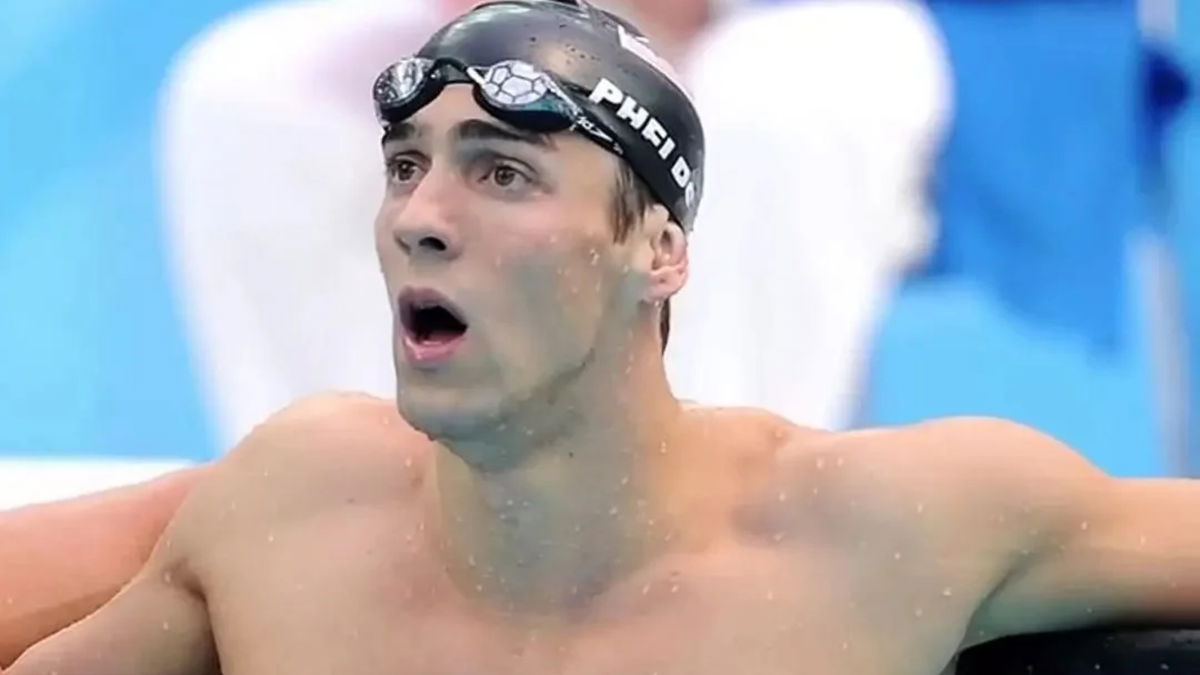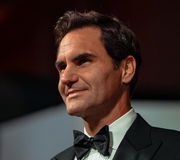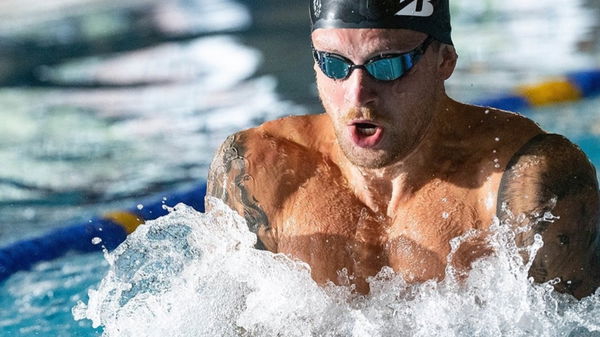

The world often associates champions with unshakable resilience and believes that unmatched glory comes hand in hand with their extraordinary physical prowess. However, the scenes behind the curtain for the winners aren’t always all gleeful. And two of the legendary swimmers from different parts of the world prove the sentiment to be true. The iconic swimmers are none other than USA’s Michael Phelps and Great Britain’s Adam Peaty.
Watch What’s Trending Now!
Phelps, with his jaw-dropping 23 Olympic gold medals, and Adam Peaty, who shattered records in the 100-meter breaststroke in 2016 and 2021, have reached pinnacles of excellence. However, behind the gold medals and the world records lies a stark reality. Both have battled relentless mental health struggles and addiction, showing that even the strongest can falter under immense pressure.
ADVERTISEMENT
Adam Peaty opens up on mental health struggles echoing the revelation of Phelps
Phelps’ mental health journey began shortly after his 2004 Athens Olympics triumph. The pressure to maintain dominance triggered depression, exacerbated by ADHD. Reflecting on his struggles, Phelps admitted feeling lost after each Olympic cycle. “What’s next?,” he often asked himself, a question that spiraled into bouts of anxiety and depression.

ADVERTISEMENT
Things took an even worse turn when his struggles extended to addiction, as he turned to alcohol and drugs to numb the pain. In 2004, Phelps faced a DUI charge, marking the beginning of a tumultuous period. Over time, therapy and introspection helped him confront these demons. “Every day is a struggle,” he revealed in a May 2024 interview, underscoring the importance of consistent effort in managing mental health. But Phelps wasn’t the only one to conquer his demons. Adam Peaty’s rise to stardom mirrored Phelps’ in many ways.
ADVERTISEMENT
The English swimmer not only became the first British male in 24 years to win gold in the 100-meter breaststroke at the 2016 Olympics, but also achieved the unprecedented feat of retaining the title in 2021. However, his journey was far from smooth. By 2023, Peaty openly admitted to battling depression and the toll of unrelenting pressure. Diagnosed with ADHD, he revealed his struggle with alcohol, which he once used to cope with the void created by his relentless pursuit of excellence.
Top Stories
Sean Payton Announces Retirement Plans as Broncos HC Demands Improvement From Bo Nix & Co. Before Playoffs

Greg Biffle’s $4M Worth Prized Possession Still Without a Buyer Leaves NASCAR Fans Heartbroken

LIV Golf Braces for Another Possible Exit in Wake of Brooks Koepka Departure

Biff Poggi All But Confirms Bryce Underwood’s Michigan Future After Announcing His Own Departure

Roger Federer Draws Criticism from Swiss Government Chief for Tourism Boom in Country

NASCAR World Mourns as Former Watkins Glen President Michael Printup Passes Away at 60

“You try to fill that void with something else,” Peaty shared in the latest episode of High Performance that premiered on January 6 on YouTube. He further emphasized the emptiness that follows extraordinary success. Reflecting on the moments of struggles he shared with Jake and Damian (the hosts of High Performance), “For me, when my goggles did fill with tears, I could just feel my soul screaming for help and my heart screaming for something else to fill that void”.

Reuters
Paris 2024 Olympics – Swimming – Men’s 100m Breaststroke Final – Paris La Defense Arena, Nanterre, France – July 28, 2024. Adam Peaty of Britain arrives. REUTERS/Ueslei Marcelino
Overcoming the setbacks, both athletes have candidly spoken about the emotional and physical toll their careers have taken. For Phelps, his journey included a pivotal moment when he sought treatment. Initially terrified of opening up, he eventually embraced therapy, learning to cope with his emotions. Peaty, too, has prioritized self-care, stepping away from competition in 2023 to focus on mental well-being while maintaining his physical preparation for the Paris Olympics. After winning innumerable accolades and fighting against mental demons, Peaty now focuses on the importance of seeing himself as a human being first before as an Olympic athlete.
ADVERTISEMENT
Peaty’s new perspective after returning from major setback owing to mental health battles
For years, Adam Peaty was a relentless force in the pool, chasing gold and smashing records. But even the brightest stars can dim under the weight of expectations. Eight months before the Paris Olympics, the British swimming icon embraced a transformative mindset. “I’m not bothered about the medals or the gold,” Peaty revealed. It was a statement that signaled a radical shift in his priorities. For the first time in his illustrious career, the three-time Olympic champion is swimming not for accolades, but for himself.
ADVERTISEMENT

Imago
Adam Peaty
A few months before the Paris Olympics, Peaty took a courageous step back from the sport he once dominated to address his mental health. The grueling pursuit of greatness had left him feeling isolated, driving a wedge between him and his loved ones, including his young son, George. Haunted by loneliness and disconnection, he even contemplated leaving swimming behind. Yet, instead of walking away, Peaty chose to confront his struggles, re-evaluate his purpose, and reclaim his love for the sport.
After coming back to the competitive sphere, Peaty’s journey isn’t about reclaiming the podium, but about proving something more profound to himself. With a fresh perspective, Peaty’s path to Paris was no longer just about breaking records. It’s about rewriting his narrative, one where triumph isn’t defined by gold. Rather, it’s defined by the strength to rise from the depths of adversity.
ADVERTISEMENT
ADVERTISEMENT
ADVERTISEMENT
ADVERTISEMENT

